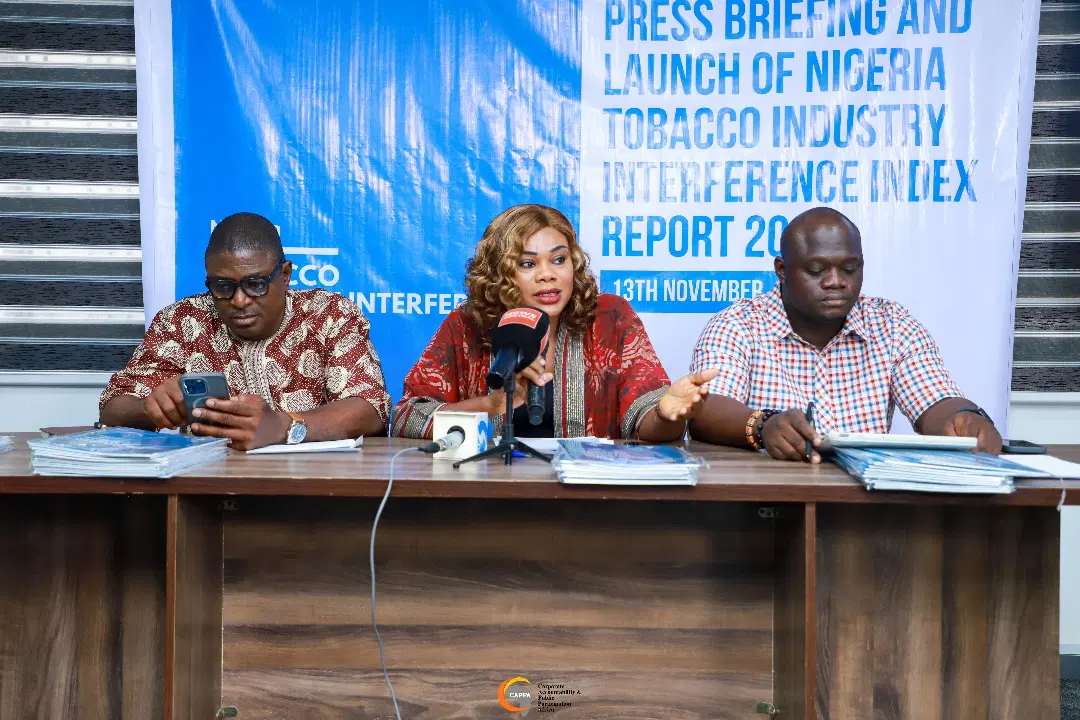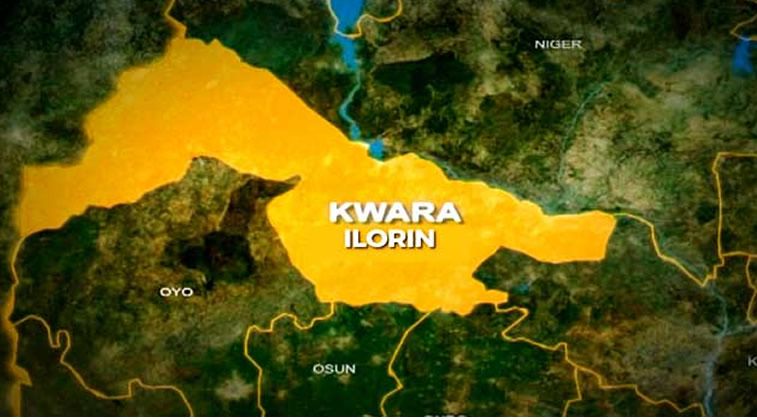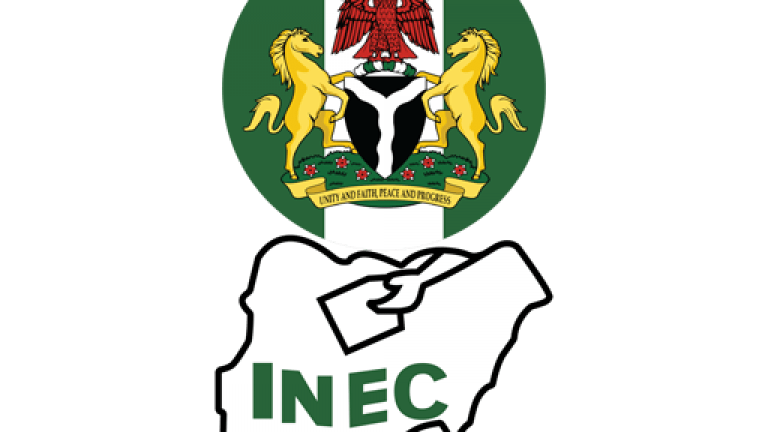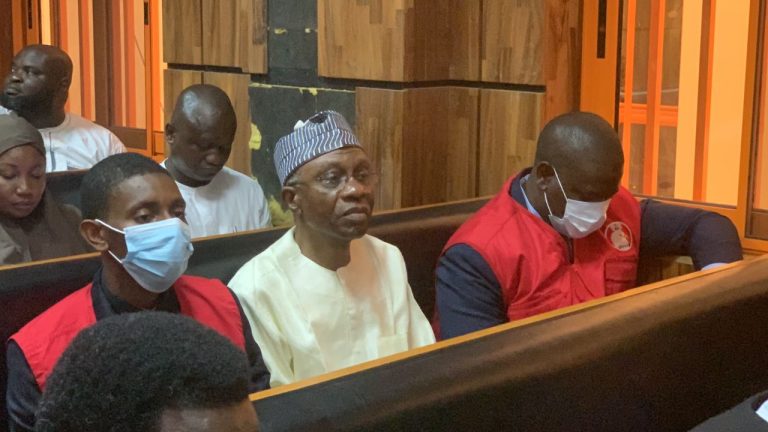
Nigeria has slipped further in the global ranking of countries shielding public health policies from tobacco industry interference, according to the 2025 Nigeria Tobacco Industry Interference (TII) Index released on Thursday.
The report by Corporate Accountability and Public Participation Africa (CAPPA) shows that Nigeria’s score worsened from 60 in 2023 to 62 in 2025, placing the country 54th out of 100 nations assessed globally.
The findings which cover April 2023 to March 2025 are part of a civil society-led initiative grounded in Article 5.3 of the World Health Organisation Framework Convention on Tobacco Control (WHO-FCTC) which warns that tobacco industry interests are fundamentally incompatible with public health.
Speaking at the launch, CAPPA Executive Director, Akinbode Oluwafemi, said the Index exposes how tobacco companies exploit weak enforcement of laws to position themselves as partners in national development.
“Despite operating a business of addiction, disease, and death, tobacco companies continue to gain access strategically and persistently into Nigeria’s policy spaces,” he said. “This year’s score confirms that industry interference remains a systemic threat to our public health architecture.”
Oluwafemi highlighted the tobacco industry’s so-called corporate social responsibility (CSR) initiatives, including borehole donations, scholarships, and reforestation projects, as strategies to manipulate public perception.
“These are not acts of generosity but manipulation designed to whitewash an image built on addiction and profit,” he said. “Even worse, government officials continue to attend and praise these events, helping the industry greenwash its deadly business.”
CAPPA Assistant Executive Director Zikora Ibeh explained that the 2025 Index assessed seven key areas, including policymaking participation, CSR, benefits to the industry, unnecessary interactions, transparency, conflict of interest, and preventive measures.
She said Nigeria’s worsening score reflects a pattern in which for every rule intended to keep the industry out of policymaking, another action quietly allows it in.
According to the report, British American Tobacco Nigeria Foundation continues to partner state ministries and local governments, embedding itself in governance despite national laws.
Her words: “The 2023 suspension of an increase in tobacco excise taxes weakened Nigeria’s fiscal and health response, shifting costs to citizens while protecting industry profits.
“In addition, political proximity persists as government officials, including the Oyo State Governor, have participated in industry events, signaling symbolic complicity.
“Transparency gaps remain pervasive, with most government agencies failing to publicly disclose interactions with tobacco companies, as required by law, while few officials have received training on Article 5.3 of the WHO-FCTC, leaving many unaware that participation in tobacco-funded events violates public health ethics.”
The report calls for urgent government reforms, including banning tobacco-led CSR in public institutions, enforcing full disclosure of all interactions with the tobacco industry, strengthening conflict-of-interest safeguards, restoring predictable tobacco taxes, institutionalising public service training on Article 5.3, and excluding tobacco companies from policy consultations, especially concerning emerging nicotine products.
“What is at stake is not just the health of individual smokers but the health of our democracy; the ability of public institutions to act independently of corporate capture,” Oluwafemi warned.
The Nigeria Tobacco Industry Interference Index is part of a global project coordinated by the Southeast Asia Tobacco Control Alliance (SEATCA) and is designed to support governments and civil society in implementing WHO-FCTC Article 5.3 to protect public health policies from tobacco industry influence.
Sunday Ehigiator



